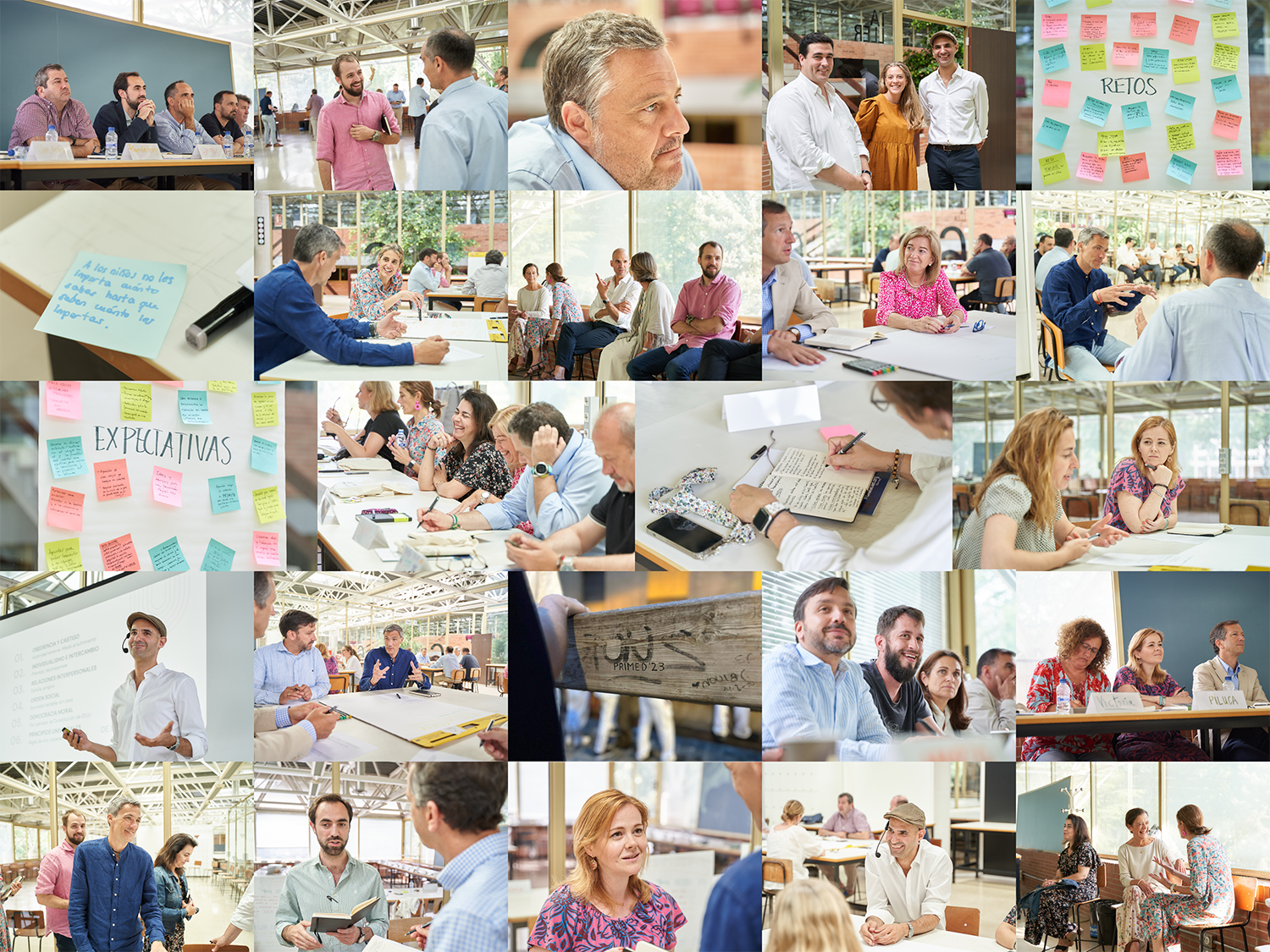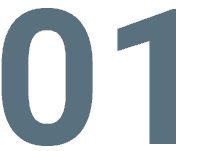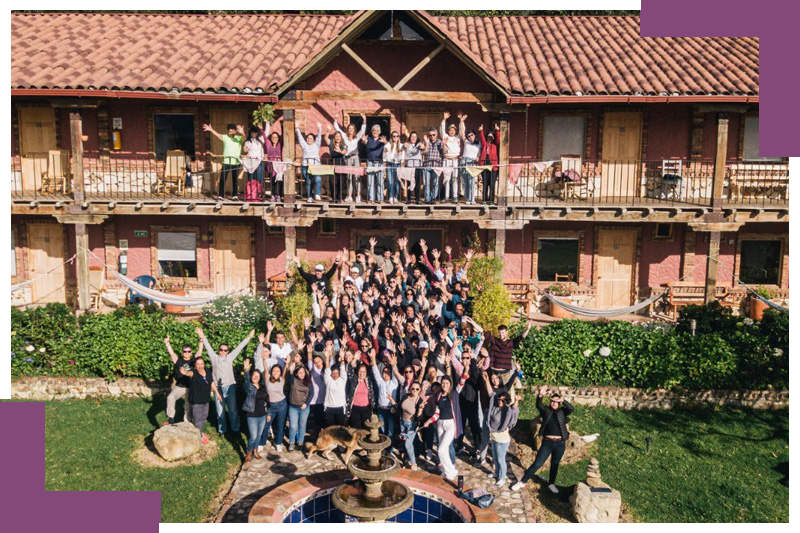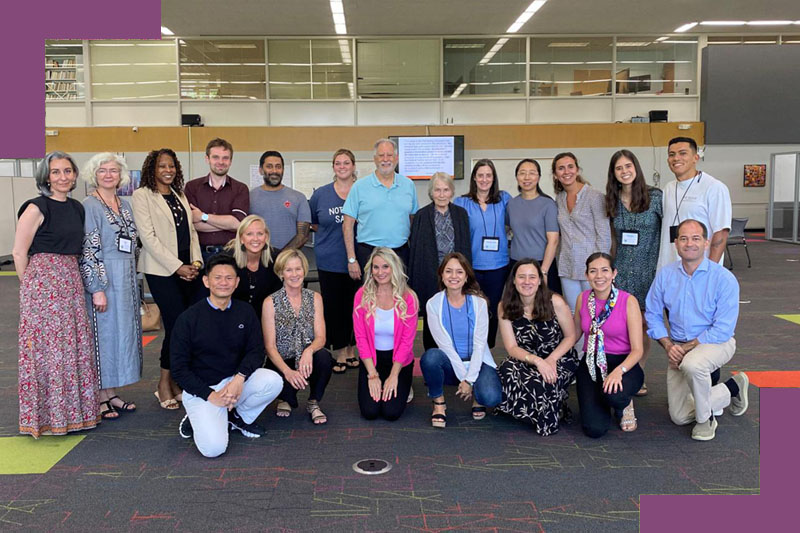

ADMISSION DEADLINE FOR PRIMED INSTITUTE 2024 | 30 PLACES
Ordinary deadline: January 31, 2024
Extraordinary deadline: May 15, 2024

GOALS
The PRIMED℠ Institute is a five-day immersion experience in character education. We invite leadership teams to spend a few days together, in a climate of trust, reflecting and dialoguing about what can make their schools places where character development is promoted in a strategic and intentional way.
It has three main goals:
Knowing the fundamentals of effective character education.
We will use the PRIMED model, developed by Professor Marvin W Berkowtiz, as a guide to introduce attendees to a successful approach to culture transformation. Leaders need to know the principles that underpin the practices and strategies they will then implement.
Build-up team relationships through experiential learning
Implementing a change of this magnitude, which directly affects the culture of the community, requires a united team eager to take on this ambitious challenge. During the Institute, attendees will have the opportunity to bond with their fellow team members, share many hours of conversation and enjoy a good time together.
Develop an action plan for the next academic year.
With the knowledge gained from the PRIMED model, attendees are invited to make an action plan for the next academic year. This kind of transformation requires several years of work. The plan developed as a result of these days can serve to open the way and introduce the perspective of character education in their communities. Participants will be mentored by the PRIMED facilitators.
INFORMATION INTERNSHIP
When?
The first week of July 2024. We start with a reception and welcome dinner on Sunday, June 30 at 8 pm and end on Friday, July 5 after the graduation dinner, which will start at 8 pm.
Where?
At the Pamplona Campus of University of Navarra. The central activity of the PRIMED Institute will take place in the workshops of the School of Architecture, although other spaces on campus will also be used.
Public
![]()
The PRIMED Institute if for leadership teams of education centers. It is recommended that principals or directors attend with their leadership team. However, it is also possible for teams to attend, even if their leader is missing.
Duration
![]()
ONE WEEK. The Institute is conducted in one intensive week with five highly interactive workshops of eight hours each, Monday through Friday. Lunches and dinners, included in the tuition, should also be taken into account as strategic moments to cultivate team relationships.
Evaluation.
![]()
Successful completion of the course requires in-person attendance at all five workshops.
Certification
![]()
Those who complete the course will receive a Certification from the School of Education and Psychology at the University of Navarra and the Center for Character and Citizenship at the University of Missouri-St. Louis for 4 ECTS.


PROGRAM
How has changed
your perspective on character education?
How has changed
your relationship with your team?
What will change
when you return to your school?
What would you say to those who are
considering doing the PRIMED Institute?
The PRIMED Institute for Character Education has been developed by Marvin Berkowitz at the Center for Character and Citizenship. This edition of the PRIMED Institute will be taught in Spanish by Professor Juan P. Dabdoub at the Pamplona Campus of the University of Navarra.
PRIMED is the acronym for six fundamental design principles that integrate effective practices and strategies for transforming educational institutions into communities that cultivate moral and civic virtues in strategic and intentional ways.
 Prioritization: Visible and concrete prioritization of character development in all areas. Leaders should direct their efforts and resources in this direction holistically.
Prioritization: Visible and concrete prioritization of character development in all areas. Leaders should direct their efforts and resources in this direction holistically.
 Relationships: Promoting caring relationships throughout the community for the sake of people and their learning, following the adage: "Kids don't care how much you know, until they know how much you care".
Relationships: Promoting caring relationships throughout the community for the sake of people and their learning, following the adage: "Kids don't care how much you know, until they know how much you care".
 Intrinsic Motivation: Developing intrinsic motivation to do well, as opposed to external motivations such as rewards and punishments. It's not just about doing good, but also doing it for the right reasons.
Intrinsic Motivation: Developing intrinsic motivation to do well, as opposed to external motivations such as rewards and punishments. It's not just about doing good, but also doing it for the right reasons.
 Modelling: Everyone in the school, especially adults, should strive to be models of virtue, from which everyone can learn. Following Gandhi, it is about "being the change we want to see in the world".
Modelling: Everyone in the school, especially adults, should strive to be models of virtue, from which everyone can learn. Following Gandhi, it is about "being the change we want to see in the world".
 Empowerment: Empower everyone in the community, hearing their voices and granting the autonomy that each one deserves to contribute to the common good by assuming leadership roles and responsibilities.
Empowerment: Empower everyone in the community, hearing their voices and granting the autonomy that each one deserves to contribute to the common good by assuming leadership roles and responsibilities.
 Developmental Pedagogy: And finally, a developmental pedagogy that integrates long-term character-related goals such as social-emotional competencies or moral reasoning into the curriculum.
Developmental Pedagogy: And finally, a developmental pedagogy that integrates long-term character-related goals such as social-emotional competencies or moral reasoning into the curriculum.

PRIMED Institute in your country!
Do you want to organize an edition of the PRIMED Institute in your country? We collaborate with other entities organizing the PRIMED Institute all over the world. Write to caracter@unav.es and make an appointment for an online interview to discuss possibilities.
Tuition
![]() vLACE: 3300 euros
vLACE: 3300 euros
![]() PRIMED: 1250 euros
PRIMED: 1250 euros
Apply for an interview
Contact
For further information, please contact Aitor R. Salaverría at: "caracter@unav.es".
Discounts
Discount options applicable to tuition:
![]() University of Navarra Alumni: 12%.
University of Navarra Alumni: 12%.
![]() Large family (3 children): 8%.
Large family (3 children): 8%.
![]() Special large family (+3 children):16%
Special large family (+3 children):16%
Discounts are not cumulative.
Certificates for FUNDAE are provided for Spanish Institutions.








